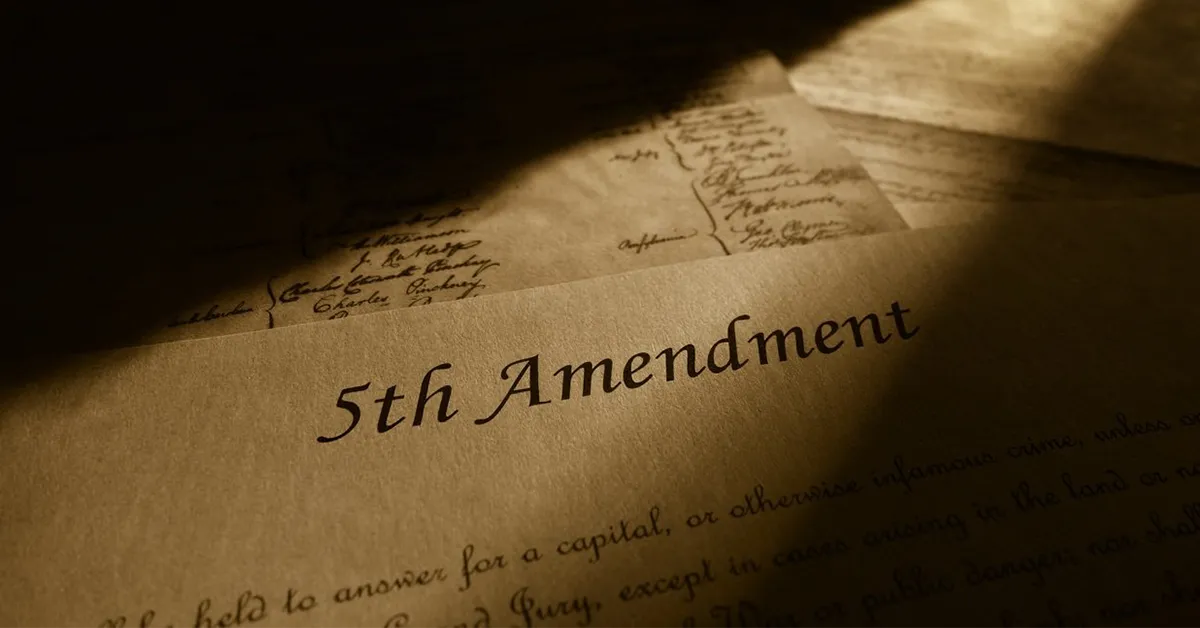Many times, one of the first things my clients tell me is this: “they didn’t read me my rights.” Sometimes, it doesn’t matter. But once in a while, the failure of law enforcement to read a person their Miranda rights has significant consequences for the prosecution’s case.
In Miranda v. Arizona (1966) 384 U.S. 436, the United States Supreme Court held that statements obtained by police during an interrogation were inadmissible against defendants who were not given Fifth Amendment warnings. The Court held that “the prosecution may not use statements, whether exculpatory or inculpatory, stemming from custodial interrogation of the defendant unless it demonstrates the use of procedural safeguards effective to secure the privilege against self-incrimination.” Miranda v. Arizona, 384 U.S. at 444. The Court also explained that the requirement for warnings is triggered by “custodial interrogation.” That seems to mean that if a person has been detained by police, who are asking them questions, warnings are necessary in order for the answers to be used against them. Not exactly.
What is “custodial?” The Court stated that custodial means when “a person has been taken into custody or otherwise deprived of his freedom of action in any significant way.” Ibid. If a person has been detained, and is being investigated for a crime, hasn’t their freedom to leave been deprived in a significant way? Not usually.
In Berkemer v. McCarty (1984) 468 U.S. 420, the United States Supreme Court considered a roadside detention of a motorist suspected of driving under the influence. The defendant attempted to suppress his statements made after his detention, but prior to his formal arrest. He argued that his freedom of movement was deprived in a significant way after police detained him, had him exit his vehicle, and began investigating whether he had committed a crime by asking him questions and having him perform various tests. The Court determined that the “presumptively brief” duration of a roadside detention, and the fact that the questions are asked in a public setting (rather than in a stationhouse), set the circumstances apart from those contemplated in Miranda. Also significant to the Court was that only a few questions were asked. But what happens when a roadside detention is not so brief, and the person detained is asked several questions?
The typical DUI roadside investigation does not last just a few minutes. Indeed, standardized field sobriety tests take several minutes to administer, especially if police are doing them correctly. Then there’s the admonition with respect to the preliminary alcohol screening device breath test that is routinely given prior to formal arrest, and the actual giving of that test to the suspect. And don’t forget the upwards of 25 pre-field sobriety test questions that are asked prior to the administration of any test. That doesn’t seem so short anymore. In Berkemer, in footnote 34, the Court suggested that a detention that lasts over 30 minutes, part of which takes place in the back of a patrol car, renders a person in custody for purposes of Miranda. That exact scenario happens a lot during California DUI investigations.
What about the questioning? In Rhode Island v. Innis (1980) 446 U.S. 291, the United States Supreme Court held that “interrogation” means questions or actions that police “should know are reasonably likely to elicit an incriminating response from the suspect.” Rhode Island v. Innis, 446 U.S. at 301. As you might surmise, there are lots of questions and actions by police that do not fall into that category. So even if a defendant shows the custodial element, they may fail to get statements suppressed because they did not show that interrogation occurred.
During a DUI investigation, a suspect is asked pre-field sobriety test questions. Law enforcement is trained to ask questions in a particular order, and with a specific agenda in mind. It is not surprising at all that police ask a DUI suspect whether there are any mechanical problems with their vehicle. This will cut off any defense that they were swerving for reasons other than drug or alcohol intoxication. The police also ask if the person has any medical issues. This would eliminate a defense that their performance on the tests was poor not because of impairment due to alcohol or drugs, but because they recently had knee replacement surgery, for example. They also ask questions like, “when did you last eat, what did you drink and how much?” And of course they ask the suspect what time they began drinking alcohol, and what time they stopped. All of these questions are asked so that law enforcement can determine a drinking pattern and obtain any facts that would assist the prosecution in determining that peak absorption of the alcohol occurred prior to driving. This is extremely important for purposes of performing “retrograde extrapolation” calculations. These calculations allow the prosecution to present expert testimony at trial and argue that the defendant’s blood alcohol level was a .08% or more at the time of driving. The chemical test always occurs at some later time, so they must be able to determine the alcohol level at the earlier time of driving. So as it turns out, nearly every question asked (and there can be 30 or more!) is geared towards eliciting information that will assist the government in prosecuting the person for driving under the influence. A trained police officer “should know” these questions are “reasonably likely to elicit an incriminating response from the suspect.” Rhode Island v. Innis, 446 U.S. at 301. Yet it appears that California courts have taken Berkemer to mean that every roadside detention and investigation is exempt from the Fifth Amendment’s requirements and sanctions. The U.S. Supreme Court likely did not anticipate the expansion of their holding in this manner. In fact, the Court cautioned against any blanket rule for roadside investigations. The Court wrote:
“Either a rule that Miranda applies to all traffic stops or a rule that a suspect need not be advised of his rights until he is formally placed under arrest would provide a clearer, more easily administered line. However, each of these two alternatives has drawbacks that make it unacceptable. The first would substantially impede the enforcement of the Nation’s traffic laws—by compelling the police either to take the time to warn all detained motorists of their constitutional rights or to forgo use of self-incriminating statements made by those motorists—while doing little to protect citizens’ Fifth Amendment rights. The second would enable the police to circumvent the constraints on custodial interrogations established by Miranda.” Berkemer v. McCarty, 468 U.S. at 441 (emphasis added).
The short answer is that defense attorneys need to move to suppress statements that are elicited during an other than brief roadside detention, where numerous questions are asked as described above. Maybe the United States Supreme Court will revisit the issue once they see the apparent circumvention of the Fifth Amendment right against self-incrimination that is occurring in California courts.
And I didn’t even write about California’s statutory rule that a person arrested for DUI is not entitled to an attorney before answering the question, “will you take a blood or breath test?” Another important topic for another day…




